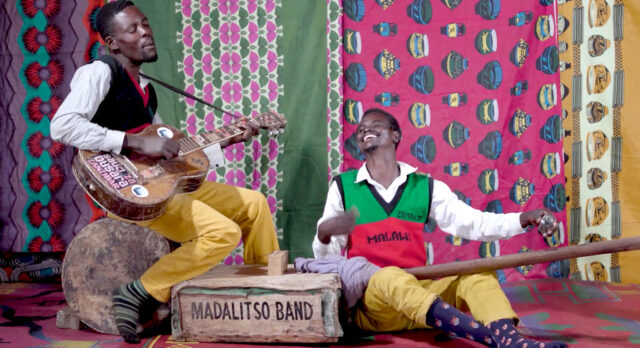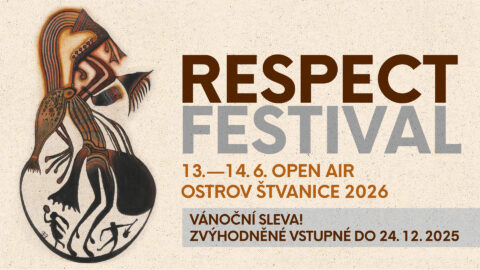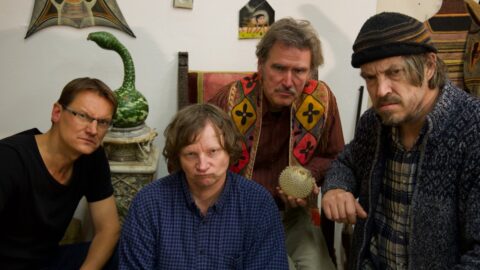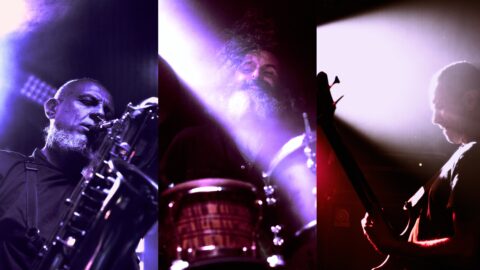Two young men from the South African state of Malawi and three instruments. A guitar with sturdy strings made from motorcycle brake cables, plus a homemade babatone, an instrument that remotely resembles a guitar. But the neck is two metres long and has a single string stretched across it. It is operated with a pick, a metal rod, or the left hand gliding over the string, creating ethereal glissandos. The guitarist sits on the drum, which he beats with his feet. The result is the essence of the African concept of music, a giddy euphoria standing on disarming simplicity. Everything spontaneous, nothing planned, maximum energy with minimum instruments. You can't bring the concert experience into your living room, this is music meant for the stage and dancing, not for Spotify and headphones. Originally street musicians, they first made a name for themselves at the pan-African Sauti Za Busara showcase in Zanzibar, where they were discovered by promoters from Europe, followed by gigs at elite festivals like Womex, Roskilde, Sziget, Womad.
The two musicians met in 2002 on the street in Lilongwe, Malawi’s capital of millions, when they were 18. They spent 15 years as street musicians. “Some call Lilongwe an ‘urban village’; 95 percent of our country has no electricity,” explains the group’s manager. There are no high-rise buildings in the town, and outside the business district there is no urban centre in the classic sense. “We basically have three types of development: densely populated, which is a slum ghetto, medium-populated, and sparsely populated, where the rich live. This makes Lilongwe spread out over a large area.” Both musicians made a living from music, with babatone player Yobu Malinga earning a living as a gardener and guitarist Yosefe Kalekeni as a security guard, and they paid a dollar a month for housing. In 2009, they were offered a recording contract: “we hoped our songs would reach people then, but nothing like that happened.”
But the big opportunity came in 2017, at Sauti sa Busara, an African festival that is a bidding event for global promoters. “But how do you envision a European tour with that two-metre instrument?” “Yes, it’s always a big deal, it gives the airport staff the creeps, but the instrument isn’t even expensive, it’s like $60, and it’s hardwood, so everything will last. Only if they don’t take it on the plane, we lose thousands of euros. We were thinking of making a folding version, but we can’t, the neck has to be one solid piece of wood to withstand the huge tension of the string.”





















